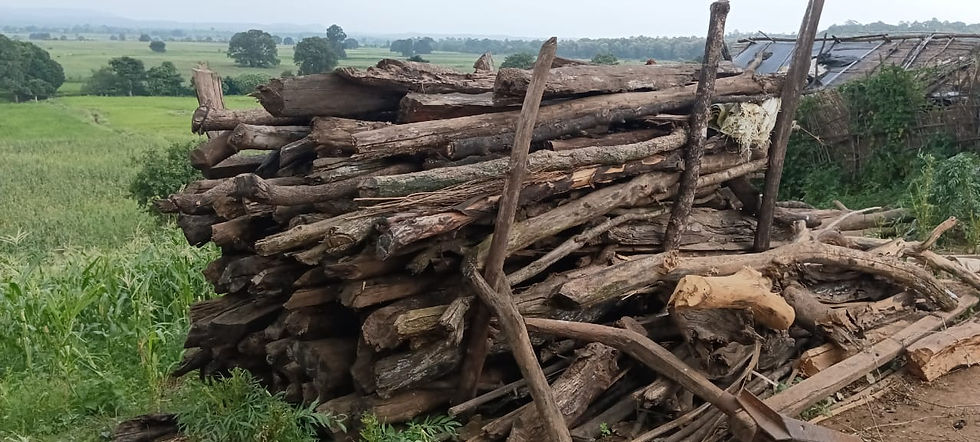

Climate Protection
In the so-called “Tribal Belt” of Central India, boiling water for drinking water disinfection happens – if at all – through firing wood with three stone stoves or traditional "chulha" (clay) stoves. While these practices may provide a means of disinfecting water, they come at a significant environmental cost. The relentless harvesting of wood for fuel not only depletes local forests but also contributes to deforestation, biodiversity loss, and climate change.
Our project enables a sustainable alternative to the boiling of water by distributing an innovative water disinfection technology to the tribal househoulds, which eliminates the need for firing wood. By providing communities with access to clean and safe drinking water, we mitigate the reliance on wood-fired stoves.
This shift away from traditional water boiling methods not only protects the surrounding forests but also reduces carbon emissions significantly, as the burning of wood releases a high amount of greenhouse gases into the atmosphere. By avoiding the use of wood in three stone stoves or traditional chulha stoves, we help mitigate climate change and preserve vital ecosystems.
Time for Action: Thinking Bigger – Moving Faster
Let’s get to work. Together. Its time to act. Now.
Experience the beauty of Melghat's forests and witness the lush greenery and expansive landscapes that are crucial to the region's biodiversity.


The majestic trees of Melghat's forest, standing tall as guardians of nature's wonders:
These impressive trees provide habitat to countless species and play a vital role in maintaining ecological balance.
Safe Water is a Climate Solution
In the Tribal Belt of Central India, reliance on firewood from the forests is common.
The pictures show collected and stored firewood in households in Melghat, highlighting the traditional practices that impact local forests and contribute to climate change.





A woman boils water with firewood on a three stone stove:
Boiling 1 liter of water for disinfection typically requires between 0.4 to 1.4 kg of firewood, depending on factors such as the type of wood and its moisture content.
Assuming an average of 1 kg of firewood per liter of water boiled for disinfection, the staggering scale becomes evident: in a region like Melghat with a tribal population of ca. 250,000 people, requiring 4 liters of safe drinking water per person per day, the total drinking water demand reaches 1 million liters of water daily.
This equates to an astounding
1 million kg (or 1000 tons) of firewood required per day to meet the basic need for safe water.
A woman boils water with a traditional Chulha stove:
All over Melghat the tribal villagers use three stone stove or traditional Chulha stoves.
These kinds of stoves have the lowest energy efficiency. This means it needs more firewood to boil water compared to more energy efficient stoves.
In our project we completely avoid the need of boiling for drinking water disinfection by distributing a highly efficient drinking water disinfectant to the households.


This picture shows the climate impact of our project in a simple way:
The stove remains cold. No more wood is fired to boil drinking water. Instead, the household uses REDO drinking water disinfection and doses the water disinfectant manually into its daily drinking water.
This disinfection process needs no energy.